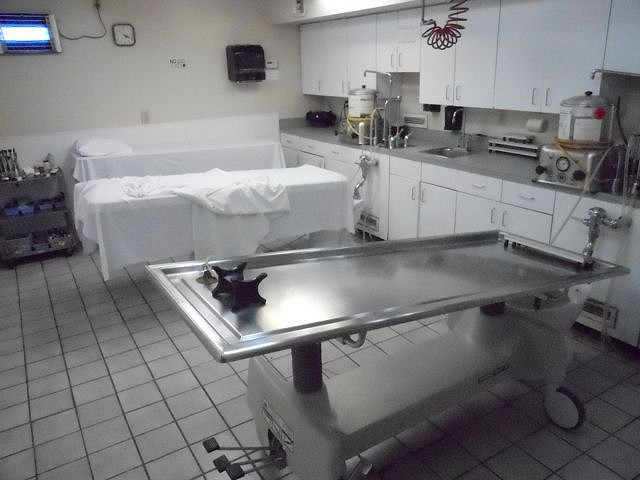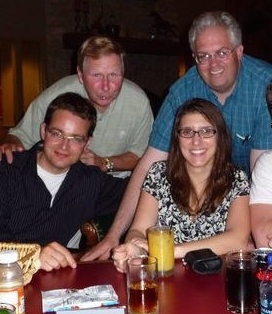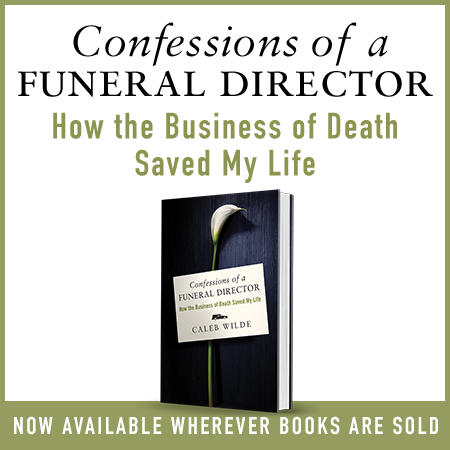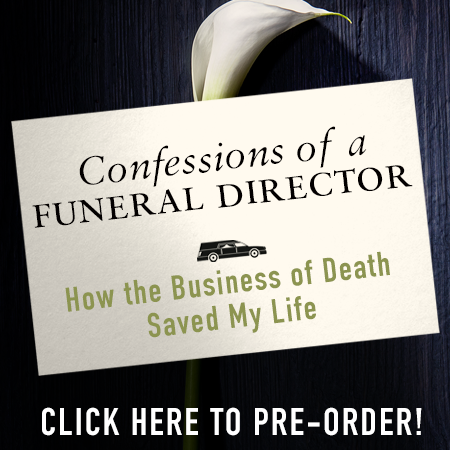Funeral Directing
10 Things Funeral Directors Hate

Photographer URL: https://www.flickr.com/people/63239698@N05/
Title: Autopsy Table
Some of these 10 things are things that I hate. Some are things that are universally hated (i.e. tissue gas) by those of us in funeral homes. While others are things that industry funeral directors love to hate (and when I use the term “industry funeral director” I’m talking about the sycophantic, uptight company men and women of “the industry”).
One. Tissue Gas:
I’m not sure if “hatred” is a strong enough word for how we feel about tissue gas (aka Clostridium perfringens). It usually ruins a body, it can sometimes run the other bodies in the morgue, and it can even ruin future bodies that come into our morgue. Tissue gas results from an organism that duplicates itself every six minutes, causing a normal dead body to totally change in a matter of hours. Tissue gas is so contagious that if it gets on our embalming instruments, it will spread to the other bodies. It’s like the movie Outbreak but in a morgue. And once it takes over, we pray for a cure, but that prayer is rarely answered.
Two. The Heroin Epidemic:
I wrote about this hatred early last week. Here’s the link if you want to read about how much I absolutely HATE heroin.
Three. Medical Examiners that Short Cut Arteries
Grrr. Just a little bit of generosity with your cuts! We’re not trimming weeds, or plucking eyebrows here. You don’t have to make those arteries as short as possible. Give us something to work with so we can embalm your autopsied body.
Four. Accidently Slicing a Vein while Raising the Carotid and Jugular:
There’s nothing that I hate more than accidentally nicking an artery or vein when I’m raising the carotid artery or jugular vein. It’s hard enough to raise the carotid and the jugular without blood seeping up from the netherworld of the neck and having to fish around blindly in the red and sinew to find what you’re looking for.
Five. Cheats:
More and more funeral homes are expecting payment up front. There’s reason for this up-front payment policy. We’ve been beaten by past clients on numerous occasions. We’ve been beaten by families who come in and say, “We have a $30,000 life insurance policy, and we only want the best. Because Dad deserves the best.” They sweet talk us, swindle us, they buy our best casket, purchase a couple plots “for the whole family” at the cemetery, they buy the best vault, write a huge obituary and put it in five different newspapers. Two months and $16,000 later and we see the family driving around town in new cars, having used all that $30,000 and bounced on the $16,000 funeral bill.
Obviously, we hate being cheated, but we also hate the broken trust.
Six. Corpse Vomit:
AHHHHH. There have been a couple times when I’ve gotten turned around on a removal and gone down the stairs with the deceased’s head facing down. If there are any remains of yesterday’s lunch, there’s a good chance that lunch is gonna come seeping out of their mouth and onto us. There are few things that are more deserving of a “Dirty Jobs” episode than handling vomiting corpses.
Seven. Casketed Purges:
This falls into the “so annoying, I hate it” category. You can aspirate all the cavities multiple times and still, on the very day of the viewing, the deceased decides to leak a little purge out of their mouth and onto the casket pillow. Grrr.
Eight. Bad Funeral Directors:
There’s nothing industry funeral directors love to hate more than “funeral directors who give the industry a bad name”. Funeral directors too often suffer from enlarged egos and self-aggrandized views of their own ethical standards, so when someone in the industry messes up, we love to hate them so we can feel distinguished from the bad guys. The bad guys act like the scapegoats to cover our own sins, hiding the fact that most of us in the industry could do better for our customers.
Nine. Criticism:
Jessica Mitford caused a lot of butthurt in the funeral industry and here’s the short answer to “why”.
Families come to us in despair, their minds clouded by grief and the unknown. They pay us to be the stable minds. And they give us power. They give us power every time they trust us with their deceased loved one and their grief. And when they give us that power, there’s a certain satisfaction that comes with treating that vulnerability with as much honor as we can.
But sometimes that power can bloat our egos. And bloated egos absolutely abhor criticism, even when it was warranted like Mitford’s.
Ten. Funeral Directors that are Transparent
Industry funeral directors often have invisible standards of “professionalism” and anyone that falls outside those standards is a “POS” or “bitch” (terms that I’ve been called on a couple occasions by the industry yard barkers). Anytime funeral directors write about our work with a degree of transparency and honesty, that stirs the feathers of the industry funeral directors.
In fact, I fully expect my book will do just that. If you want an insider perspective on the industry that’s equal parts personal, honest and transparent, buy my words:
Three Stories of Funeral Drama

Author: pedro alves
Author URL: https://www.flickr.com/people/sevlaordep/
Funerals are the perfect storm for drama. Death brings out all sorts of emotions and because we’re not used to emotions like grief, it’s more difficult to control our emotions as a whole. You might say things that they’ve been thinking for years, like telling your brother, “You’re so rich, YOU should pay for dad’s funeral bill” or “I was always Mom’s favorite so I get to make these decisions.”
If a soap opera really wanted to create a ripe context for daytime television, they’d write a show for a funeral home and call it “General Funeral Home” or “Days of Our Deaths” or “The Dead and the Rest in Peace”. Here are three stories of funeral drama that I’ve seen:
The Drunk: Some people see funerals as a stage, a stage where they can shine. I probably have a hundred attention grabber stories, but one star stands out brighter than them all. A couple years ago, we buried a man in his sixties who had little life connections except a couple friends and a couple sisters. The family decided to have a graveside service at a small cemetery on top of a little hill in a neighboring town.
All was going well until some friends showed up at the graveside service with a drunk in the back seat. The drunk got out of the car and we could tell things were about to get exciting. He sauntered out of his car and immediately started talking in a loud voice about how the deceased was his blood brother. He quickly qualified that with, “he was also an asshole”. At first, the deceased’s sisters snickered at the drunk, but once the preacher began and the drunk was trying to get his words in the sister’s told the drunk to “just shut up.”
Loud mouth drunks are no fun at funerals, especially when we have to play bouncer and try to corral them. I was really relieved when the sisters’ “just shut up” actually worked and the drunk quieted down as the preacher finished his message. But the drunk ended the show with a crescendo. When everyone else was putting a flower on the casket, the drunk picked up a handful of dirt, threw it at the casket and said with a laugh, “take that you lovely SOB.” After that, he walked away, got in the car and his show was over.
The Thief: We got the death call from the eldest son, who had driven all the way from Montana in his big dualie truck the week before in anticipation of his father’s death.
“What time do you want to come in to make funeral arrangements?” I asked.
“Well, that’s not so easy to determine,” he said in a slow and steady voice. “See, my younger brother and I don’t talk much. I’m gonna give you his phone number, you can call him and whatever time he wants will work for me.”
Red flags went up immediately for me. It’s always a danger when funeral directors become the mediators between fighting family factions.
I called the younger brother, set a time and then called back the older brother. A couple hours later they were sitting at the funeral home across from each other, neither one willing to talk to the other one. They’d talk to the other through me by saying something like this, “If he wants that casket, I’m okay with it.” And the other would look at me and say, “Well, if he’s okay with it, this will be dad’s casket.” The whole process was laborious, childish and taxing on me as I played both mediator and funeral director.
The day of the funeral, the younger brother showed up about a half hour before the viewing just like we had planned. But the older brother was nowhere to be found. We really didn’t think anything of it. It’s not like the older brother HAD to be there a half hour before the public viewing. But an hour later and he still wasn’t at the funeral and we started to wonder where he might be. Those questions were quickly answered as we saw his truck coming down Main Street to the funeral home. But as it got closer, we noticed it was pulling a trailer behind it with a Harley-Davidson Motorcycle, a zero-turn mower, a tool chest and some other valuables. He stopped in front of the funeral home, rolled down his window and said, “Go get my brother.” As soon as his brother walked out the funeral home, the older brothers started to drive off, honking his horn. The young brother opened his mouth and started yelling, “That’s all Dad’s stuff! You’re taking all his stuff!”
The Drama Daughter: Let me make this clear from the beginning: if the way you express your grief is through drama, that’s okay, just so it’s not mean drama where you’re messing up everyone else’s grief. What you’re about to read is likely healthy drama, but it was nevertheless difficult for us as funeral directors to navigate being that I’m not Dr. Phil.
A couple years ago we dealt with some very, very dramatic grief. We went on a house call, and the two sons and one of the daughters of their deceased mother came out to meet us. This is normal and we didn’t think anything of it, but as they came closer to us their faces were a mixture of grief and perplexity.
“We have a problem,” they told us, “our sister is absolutely set on the idea that she doesn’t want mom to leave the house.”
“That’s fine”, we responded. “We can come back when she’s ready for us.”
“See, the problem is that we don’t think she’ll ever be ready for that. She’s been with mom’s body for the past nine hours and she’s set on staying, and we don’t want her to.”
And here’s where things got messy: three of the deceased’s kids wanted us to take mom back to the funeral home, but one wanted to stay exactly where she was.
They asked us if we had any suggestions and we told them that we could come back tomorrow and see if she changed her mind. But they were adamant, “You don’t know our sister. This needs to happen now”
We followed them into the house and into the room where their mother lay. When the sister saw us, her eyes shot daggers our way. After a half hour of her siblings comforting her, they finally got her to release her grip on their mom. We went in to make our move, and she ran and threw herself on top of her mom like an angry dog protecting her puppies. So, like one would do if you saw an angry dog, we slinked back away.
Another half and hour rolled past and this time her siblings got her to move to another room. We made our move, put the deceased on our stretcher, loaded her into our removal van, and as we started the car and put it in Drive, we saw the front door swing open. What happened next still leaves me feeling uncomfortable to this day.
The door opened and out flew the drama daughter, who was being closely followed by her three siblings. She must have heard the van start, realized what was happening and made a quick dash to catch us. We looked in the rear view mirror and saw the three children waving their arms, telling us to keep going, while the other daughter chased after us, screaming “bring back my momma!” Three of the children were telling us to go, so we did.
The following day they all came into the funeral home to make arrangements and everybody, including the drama daughter, seemed okay. It was a new day for them and everyone was ready to move on.
If you like my stories, here’s a book full of them:
10 Pieces of Advice for New Funeral Directors

One. Nobody who “wants” to be a funeral director will make it.
It isn’t something you want in the way that you want a boy/girlfriend or a new car. No. It’s more like marriage. It’s a commitment that’s intended to last. It’s not a job … nor is it just a profession … this business is a lifestyle. And if you’re not ready to marry it, then move to another job that demands a less committed relationship.
Two. Dress Above Your Station
I’m always impressed by a funeral director who dresses well. Find a good tailor, buy good shoes, spend extra on that suit that fits you really well, keep your hair in shape and smell good. It might cost you money that you don’t have, but it will pay you back in confidence and numerous good-humored flirtatious advances from people three times your age.
Three. In the words of Aaron Burr, “Smile more. Talk less.”
What made Hamilton cool is that he didn’t care about his image, he cared about his legacy. Burr was the antagonist only because he cared about his image and never forfeited that image for something lasting. But Burr’s adage of “Smile more. Talk less.” isn’t all bad per se. It may have been bad for Hamilton, but for those of us in the funeral industry, it’s pretty good advice.
Four. Don’t try to be a perfect professional
One of the common pitfalls I see in young funeral professionals is that they’re entirely too stressed out in their pursuit to be the perfect funeral professional. Families don’t want you to be stressed out. They don’t need a perfect funeral director. They need you to be calm, in control of your stress and ready to be present. It’s hard, I know because I was once that stressed out “professional”, but somewhere along the way I stopped trying to be a consummate “professional” and it was then, and only then, that I really started being present and helping families.
This also means that you know your knowledge boundaries. Direct those questions outside our professional knowledge to the people who are qualified to answer. We aren’t lawyers, doctors, grief counselors or theologians. And when we don’t know an answer to a funeral question, ask a mentor. It’s okay if you don’t know an answer; what’s wrong is when we let our pride get the better of us and we act like we do.
Five. You will get used to the schedule
When you first start in this business, ITS SOOOOOO DAMNNNN TOUGHHHHHHHHH!!!!! The holidays. The weekends. It even takes our nights! And after it takes our weekends, and our sleep, it tells us to get back up at 7 AM because there are two funerals we have to work the very next day. It really does take awhile for our bodies and minds to get used to the schedule. Sometimes our bodies and minds need help getting used to the schedule. Sometimes we might need a psychologist. Sometimes we might need a fitness instructor. But most times we just need a good nap. If you stick to it, you’ll eventually be able to keep up.
Six. Allow yourself to learn patience
Have you ever been around grieving people? At times grieving people act like they’re out of their minds. And, there’s times when grieving people can act … well … they act kinda crazy. And it’s their right. In fact, it’s the reason WE exist. Their world has been pulled out from under them, they haven’t a foot to stand on and everything that they used to know is suddenly … gone. And you’re here to help create semblance in the crazy.
It can be tough to learn patience, especially when we’re working on small amounts of sleep and are arranging multiple funerals at once. But it’s something we have to do.
Seven. Continually remind yourself why you’re here
The secret to learning patience, to getting used to the schedule, to finding resilience during the tough schedule is this: Learn to love serving others. Probably the best means to cope with the funeral business is found in the people we serve. Love them intentionally and don’t be afraid to find joy in meeting their needs. Don’t be afraid to hear their stories and become part of their family.
Eight. It takes a while to grow into this business (in other words, have patience with yourself)
Generally, you work with older people and older people prefer to work with people within their generation. It can be hard for a younger person to establish themselves in this business, but it’s very possible. There are no Mark Zuckerburg 18-year-old prodigies in funeral service because being a funeral director is about life experience, not business acumen.
Nine. Find a Mentor
This doesn’t have to be anything official. You don’t have to update your Facebook status to “in a mentor relationship with ….” Find someone you respect in this profession, someone who has more experience than you do, someone who is willing to answer your numerous question and stick close to that person (it’s best if you work with that person). At one time, this industry was a trade; in other words, it wasn’t taught in schools and regulated by state boards. It was a trade that was taught by a mentor to an apprentice and the skills and business acumen were passed down through word, practice and in house training. I do believe that the best funeral directors are still being produced when they treat this work like a trade. They find a mentor, and they learn by the guidance of someone older and wiser.
Ten. Learn to practice self-care
I’ve been close to being burnt out. Landed in the hospital. Reevaluated life. I started to see a psychologist. I started anti-depressants. I started writing more. I started going to the gym more. Saying “no” more often. I started to realize that if I wanted to take care of others, I had to take care of myself. Self-care is the unselfish act of selfishness and I know for a fact that I’d be out of this business if I didn’t practice it.
If you’re a new funeral director (or you want to be one), I do believe you’ll gain a lot of perspective from my book. It’s a transparent and personal look at the rigors of being a funeral director.
10 Things Funeral Directors Do to Chill
One. We Hobby Hard.
Nearly ever funeral director I know has a hobby. I know a clay sculpture, an antique car restorationist, a golfer, a dragster driver, a pole dancer, exercise fanatic, a colonial home restorationist. Most everyone has a hobby, but it seems funeral director invest themselves heavily in their hobbies to provide a respite from their job.
Two. We Party Harder.
I’m not a partier, so you can count me out of this group. But I think I might be an exception.
A couple years ago a casket company flew me and about 20 other funeral directors to their casket-making plant. During the day, we would walk around the plant and get all the details about how caskets are made. During the evening, we’d be bused back to a lodge, a lodge that had an open bar. There was a lot of libations, as seen by the numerous drinks sitting around us in the photo below. A couple years before, my dad went on the very same trip and he said a couple directors got so drunk they were dancing on tables. Good times.
I’ve always said, there are few things in life more interesting than a drunk funeral director.

Three. We Probably Don’t Have Many Deep Friendships
The schedule of our work can be very rigorous. And free time can be hard to come by. Sometimes we don’t get to see our families and the little free time we have, we want to spend it with our partner and children. And sometimes we just have to say “no” when you invite us out to dinner or to a ball game. But don’t be hurt by our “no” and please keep asking us to visit with you. Funeral directors need friends too, it’s just not always so easy for us, or you. Which leads me to number four …
Four. We Tend to be Home Bodies
When I get home from a long day at the funeral home, I just want to stay there. One of the reasons we like to stay home is that we’re often on call. And nothing sucks more than going out only to be called back in.
Five. Our Social Lives Tend to Be Invested in Social Clubs
Social clubs are perfect for funeral directors: there’s often drinks, there’s a bunch of potential clients and we don’t have to get too deep with anyone. Win, win, win.
Six. Gardening Is a Thing
Gardening is another win-win situation for funeral directors. One, gardening is relaxing and peaceful; and two, you can do some gardening at the funeral home and make it look pretty.
Seven. We Might Embalm Road Kill
When my dad went to funeral school, one of his classmates would embalm roadkill as an enjoyable pastime.
Eight. Church(es)
Churches have the win-win situation like social clubs, although without copious amounts of liquor (unless you really imbibe the Lord’s blood). I know a few funeral directors who frequent a couple churches because nothing spells “good business” like exploiting the Lord’s people.
Nine. We Make a Bunch of Kids (and enjoying practicing)
Sex. Most people like it. But, I’ve noticed a proclivity in funeral directors. They really like it. Maybe it’s a way to let off steam. Maybe all the death pushes us to do things that make us feel alive. Maybe it’s just a great way to exercise without having to buy any exercise equipment. But, yeah. We’re a horny bunch.
Ten. We write stuff
Sometimes blogs. Sometimes books. You didn’t see that sales pitch coming, did ya?
A Morgue Miracle
 A morgue miracle occurred today. I was doing deeds that are done in prep rooms, deeds that shall not be described in detail in this forum. Unlike many embalmers, we use an old school electric aspirator instead of a hydro-aspirator. One of the disadvantages to the electric aspirator is that the aspirated contents go into a little container (shown above) that has to be removed from the vacuum tubing when full so that the contents can be dumped down the drain.
A morgue miracle occurred today. I was doing deeds that are done in prep rooms, deeds that shall not be described in detail in this forum. Unlike many embalmers, we use an old school electric aspirator instead of a hydro-aspirator. One of the disadvantages to the electric aspirator is that the aspirated contents go into a little container (shown above) that has to be removed from the vacuum tubing when full so that the contents can be dumped down the drain. Another miracle that I’d like to see is this book in your hands. If you like funeral stories, you’ll like this:



